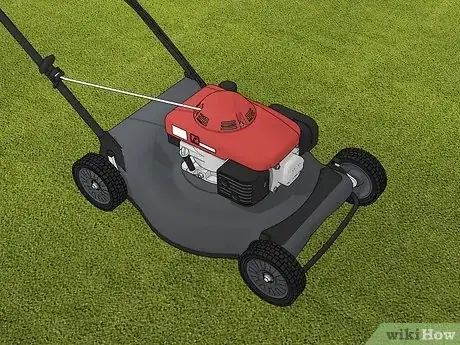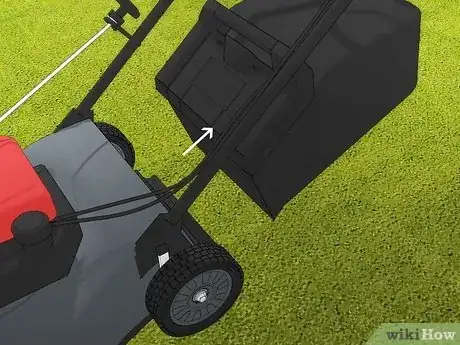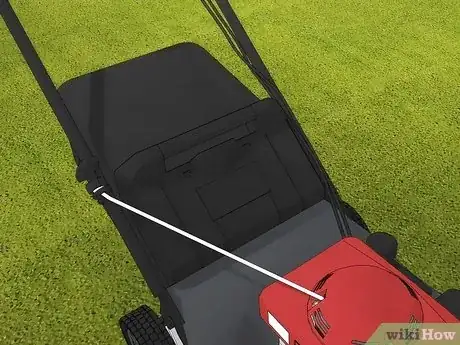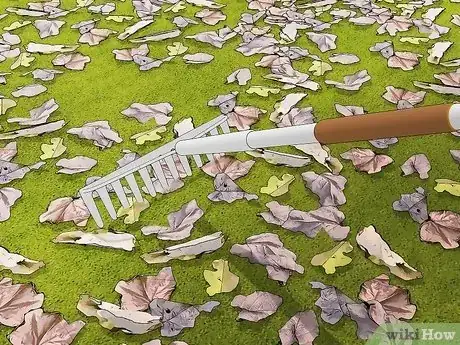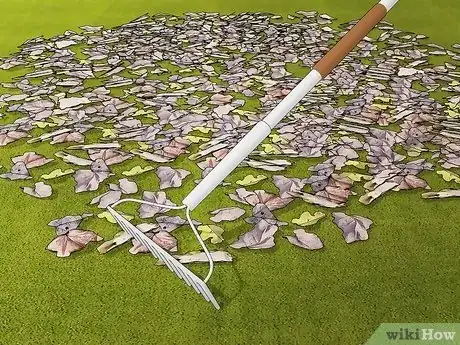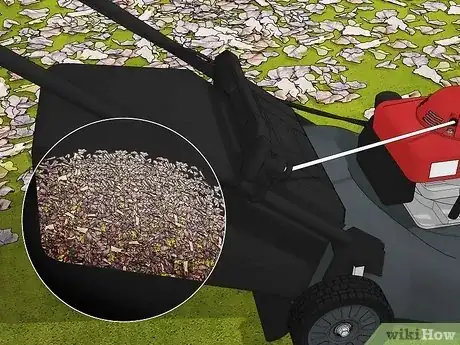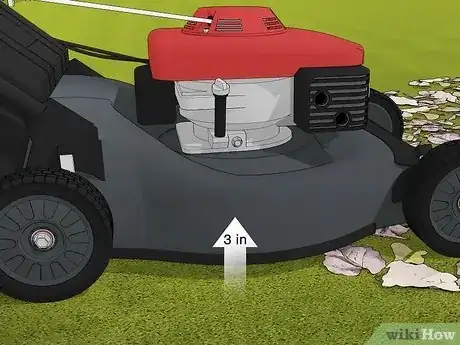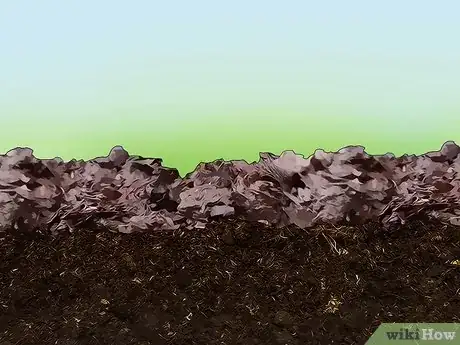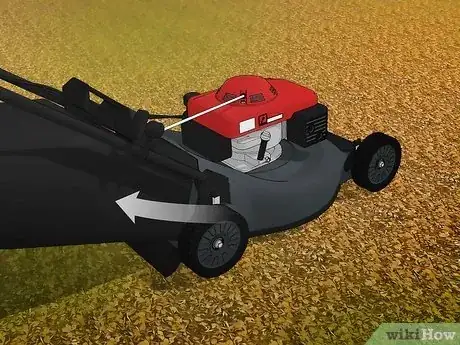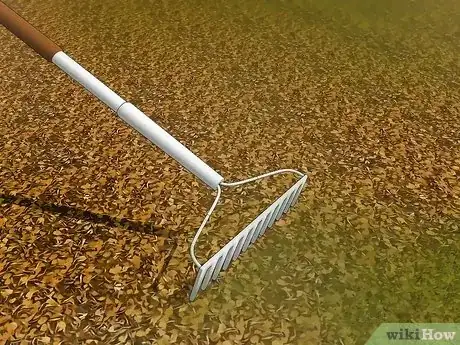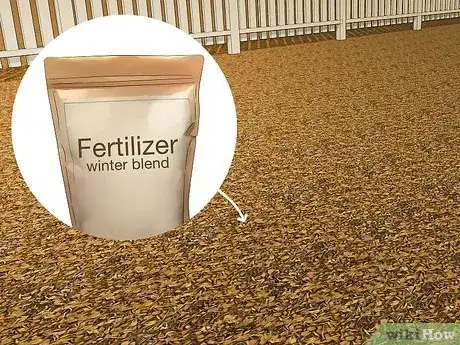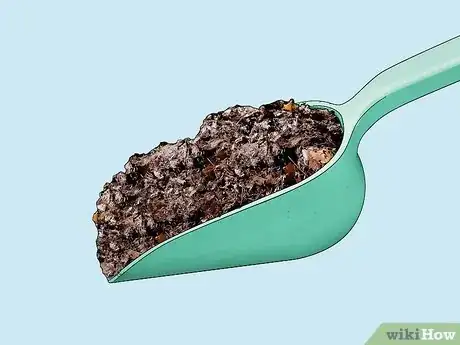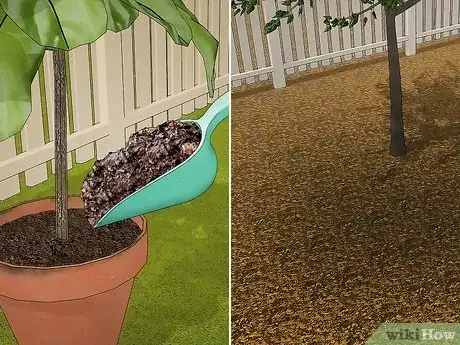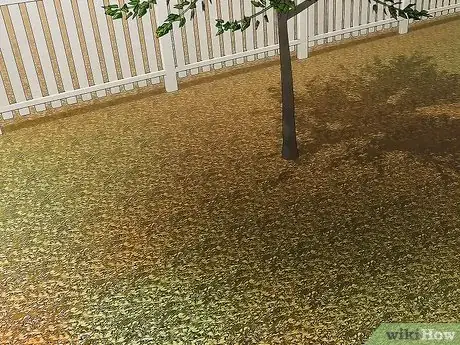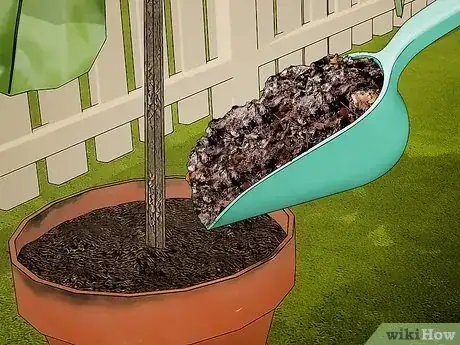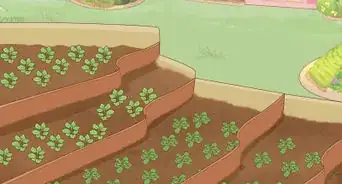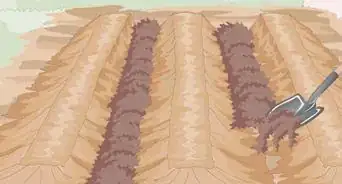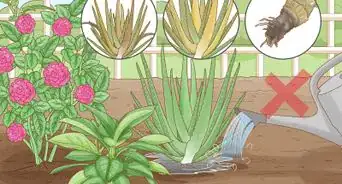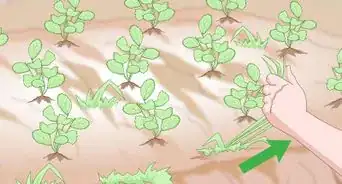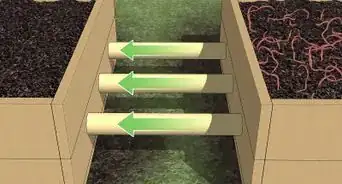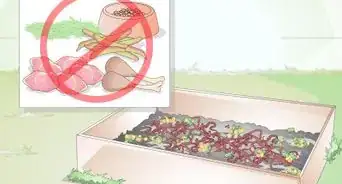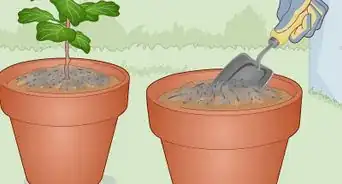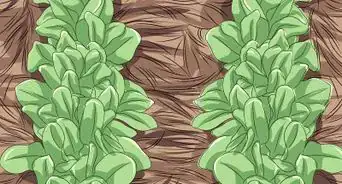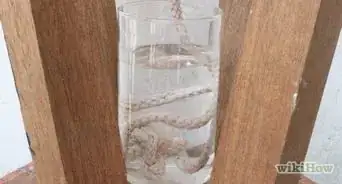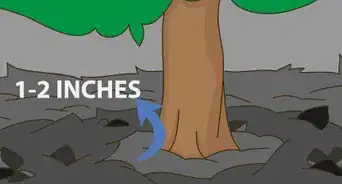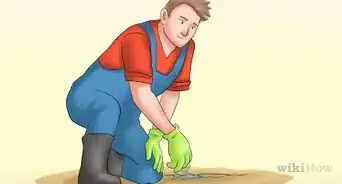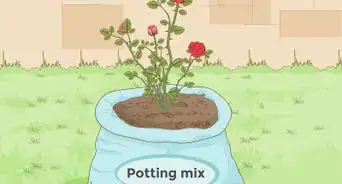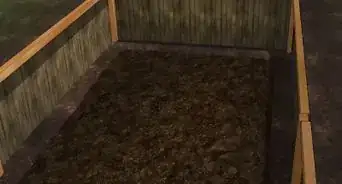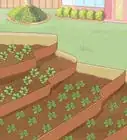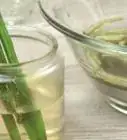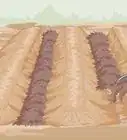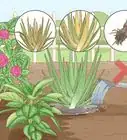This article was co-authored by Grant Wallace. Grant Wallace is a Landscaper and Owner of Grantlanta Lawn in Atlanta, Georgia. With over seven years of experience, he specializes in lawn maintenance and landscape installation. In 2012, he earned his BA from the University of West Georgia. Grant has been profiled in Shoutout Atlanta, Canvas Rebel, and Voyage ATL.
This article has been viewed 54,756 times.
If you allow fallen leaves to remain on your lawn without raking them away or mulching them using the mower, they can suffocate your lawn by depriving it of light and air. Mulching fallen leaves with a lawn mower helps to provide a nutritious, protective mulch for the grass, clear unsightly leaves, and stops the leaf litter suffocating the lawn. All things considered - mulching is good garden practice!
Steps
Mulching the Leaves
-
1Use a rotary-action lawn mower. You can use any kind of rotary-action garden lawn mower to mulch leaves. Two types of lawnmower that are work particularly well for this task are high power mulching lawnmowers and side-discharge lawn mower.
- If you want to leave the leaf mulch on the lawn to improve your grass, take the grass catcher or bag off the lawn mower, being very careful of the blade.
- However, if you want to use the mulch elsewhere, you may want to leave the grass catcher attached to the mower, as this saves you the effort of raking up the mulch afterwards.
-
2Spread the leaves over your lawn using a rake. If you plan to leave the mulch on the lawn, distribute the leaves over the whole area. Use a rake to spread them out over the entire surface of the lawn. If you're lucky, the trees may have already done this for you!
- If you plan to remove the leaf mold for use elsewhere, consider raking the leaves up into a smaller area. That way, after mowing you will have less area to cover when gathering the leaf mold.
- Alternately, you can leave the grass catcher on the lawn mower and scoop the leaf mold out of there. You may need to keep emptying this, depending on how much leaf litter you have.
Advertisement -
3Set the mower to a height of three inches and mow over the leaves. You'll want to cut the leaves into pieces about the size of a dime.[1] You may need to pass the mower over the leaves several times to achieve this. Try making the second pass at right angles to the first.
-
4Leave a one inch layer of leaf mold on the lawn. If you plan on leaving the leaf mulch on the lawn a one inch layer is ideal, as it will wash down with the rain and decompose over time.
- If the mulch is still too thick on your lawn, try reattaching your grass catcher or bag and passing over it again – this will gather up some of the mulch.
- Alternately, you can rake some of it up and use it elsewhere.
-
5Feed your lawn at the same time as mulching. It's a good idea to feed your lawn at the same time as mulching it – you'll notice the difference in springtime. A winter blend fertilizer is a good choice in the fall. These fertilizers that have a high proportion of potassium relative to other ingredients.[2]
Using the Leaf Mulch
-
1Understand why leaf mold makes a good mulch. Leaf mold is a good garden mulch as it is freely available and breaks down easily, as well as offering all the properties of a regular mulch, such as keeping weeds down, protecting the plant roots through colder months, and keeping moisture in the soil.
-
2Decide how to use your leaf mulch. You have two choices when it comes to using your leaf mulch. Either leave it in place on the lawn, where it will help to improve the lawn, or rake it up or catch it in the grass catcher on your mower and use it elsewhere in the garden. You can use leaf mulch over any kind of plant, hedge or shrub.
-
3Use leaf mulch as a lawn improver. If you leave the mulch leaves on your lawn after mowing, you'll be doing it a favor. It will improve the soil and add some nutrients.
- Although fallen leaves will mulch the lawn naturally, mulching the with the mower helps them to break down (decompose) faster, especially if they are mixed in with grass clippings. This will happen naturally if you use a mower to make the mulch.
- Fall is a good time to do this, as the leaf mulch will also protect the grass roots over winter.
-
4Use leaf mulch elsewhere in your garden. Leaf mold also makes a great mulch for garden plants. Apply it under plants, shrubs and hedges in a layer 3 to 4 inches (7.6 to 10.2 cm) thick. You may need to water the plants first if the weather has been dry recently.
- If you are replacing a mulch layer from the previous year, remove any old mulch before you apply a fresh layer.
- Leaf mulch is also good for adding to the compost heap.
Expert Q&A
-
QuestionHow do you mulch leaves with a riding lawn mower?
 Grant WallaceGrant Wallace is a Landscaper and Owner of Grantlanta Lawn in Atlanta, Georgia. With over seven years of experience, he specializes in lawn maintenance and landscape installation. In 2012, he earned his BA from the University of West Georgia. Grant has been profiled in Shoutout Atlanta, Canvas Rebel, and Voyage ATL.
Grant WallaceGrant Wallace is a Landscaper and Owner of Grantlanta Lawn in Atlanta, Georgia. With over seven years of experience, he specializes in lawn maintenance and landscape installation. In 2012, he earned his BA from the University of West Georgia. Grant has been profiled in Shoutout Atlanta, Canvas Rebel, and Voyage ATL.
Landscaper Start by blowing out all the beds and any areas that your mower can't reach so the leaves are all in a mower-accessible part of your yard. Then, install mulching blades and head out in your mower. Afterwards, you can take your blower and make sure there are no chunks left in the leaf piles.
Start by blowing out all the beds and any areas that your mower can't reach so the leaves are all in a mower-accessible part of your yard. Then, install mulching blades and head out in your mower. Afterwards, you can take your blower and make sure there are no chunks left in the leaf piles. -
QuestionHow can I turn mulch into compost?
 DonaganTop AnswererIf you just let mulch sit for a few weeks or months -- and mix in some other organic material, add a little water occasionally, and stir it up once in a while -- it will turn into compost on its own.
DonaganTop AnswererIf you just let mulch sit for a few weeks or months -- and mix in some other organic material, add a little water occasionally, and stir it up once in a while -- it will turn into compost on its own. -
QuestionAt what height should I set my mower?
 Community AnswerIf you do not need to mow the grass, and you only need to mulch the leaves, use the higher setting.
Community AnswerIf you do not need to mow the grass, and you only need to mulch the leaves, use the higher setting.
Warnings
- If you remove the grass catcher from your mower, bits of leaf and grass may spray everywhere! If this is the case, wear old clothes and even eye protection.⧼thumbs_response⧽
- If you have pets, you may want to clear the lawn carefully before you do so or you'll spray up a load of poop.⧼thumbs_response⧽
Expert Interview
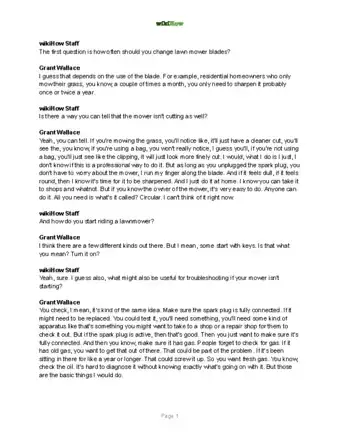
Thanks for reading our article! If you'd like to learn more about mulching leaves, check out our in-depth interview with Grant Wallace.
